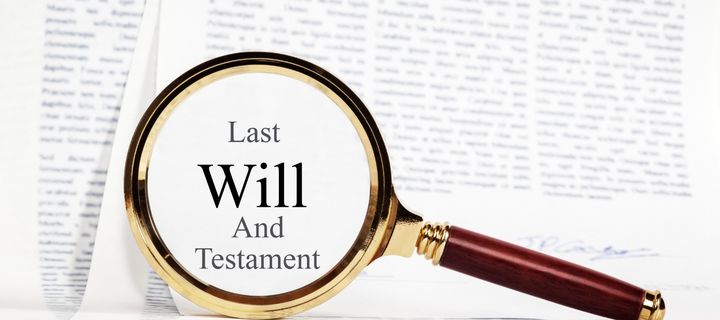
Making sure you have a Will and that you do not die intestate is very important. But what happens when there are no beneficiaries or those named on your Will have also passed away? There are ways to cover all contingencies in your Will, including nominating a ‘longstop’ beneficiary. We have provided a simplified guide on this complex topic.
Principal beneficiaries are deceased
There have been cases when someone dies without specifying in their Will who should benefit when their principal beneficiaries die. This could either be during your lifetime or in quick succession. A principal beneficiary could be your partner, child, grandchild, parent, another family member, or even a friend. In these instances, the estate will pass in accordance with the rules of intestacy, similar to when there is no Will in place.
Think of the rules of intestacy as a flowchart. There are yes and no questions that work through a list of family members until a suitable living relative is identified to inherit. If there is no one left to inherit from the estate, then this will pass to the Crown.
How do the rules of intestacy work?
The rules of intestacy are complicated, but as an example of how this works, the following is a simplified guide:
- If you are married or in a civil partnership, your surviving spouse or civil partner inherits everything if you have no children. If you have children and the estate is worth more than £322,000, your partner will inherit this amount and their personal possessions. Anything remaining above £322,000, would be halved between the partner and children.
- If there is no Will and no surviving partner or children, then the estate could then be passed to a surviving parent, sibling, niece or nephew. In some cases, estates could even be passed to surviving grandparents, aunts and uncles, and distant relatives.
- If someone dies without a Will and they have no family that can be traced, the estate passes to the Crown. The estate would then become ‘bona vacantia’ and the Treasury solicitor would be responsible for administering the estate.
Nominating a longstop beneficiary
Without a Will or any surviving beneficiaries, the rules of intestacy will automatically apply. So, it’s essential to include a ‘longstop’ beneficiary. This does not necessarily need to be a person; you could nominate a charity as your longstop. Nowadays, it is commonplace to choose one or more charities to inherit an estate as the ultimate or default beneficiaries. This outcome takes effect if all other beneficiaries are deceased.
By nominating a longstop beneficiary in your Will, you can rest assured that your legacy can be put to good use after you die. You could consider a charity that has a personal meaning to you or multiple charities that you often donate to.
The importance of making a Will
If you don’t have a Will, then you won’t have control over who inherits your money, property and possessions when you die. It’s worth noting that if you have only separated from your spouse or a civil partner, the marriage/partnership is still valid, so they could inherit your estate. If you are cohabiting, your partner would only inherit from you if they have been named in your Will.
If you have remarried or entered into a new civil partnership, children from previous relationships could be disinherited. Your new spouse or partner would automatically inherit from you, which could include their children later down the line.
We recommend reviewing your Will every year, particularly after someone has died, got married, or had a child. It’s also essential to make sure your executors are up to date. There have been cases when executors have died or cannot be located, which causes issues for estate administration. We also advise writing a letter of wishes to convey your requests, especially in relation to sentimental items you would like certain people to inherit from you.
Wealth Managers, Nottingham and Lincoln
Our financial planning team will help you manage your wealth and your legacy. We will explain how the rules of intestacy may apply to you and we can help you choose a longstop beneficiary. We can also be named in your letter of wishes as your trusted adviser, requesting your family consults with us on your financial matters. Our aim is to make sure your estate goes to the right people when you die.
If you would like to discuss your Will, get in touch to speak to our financial planners.
Sources:
(Probate solicitor’s intestacy flowchart)
https://www.citizensadvice.org.uk/family/death-and-wills/who-can-inherit-if-there-is-no-will-the-rules-of-intestacy/#:~:text=If%20there%20is%20no%20surviving%20partner%2C%20the%20children%20of%20a,be%20divided%20equally%20between%20them.

